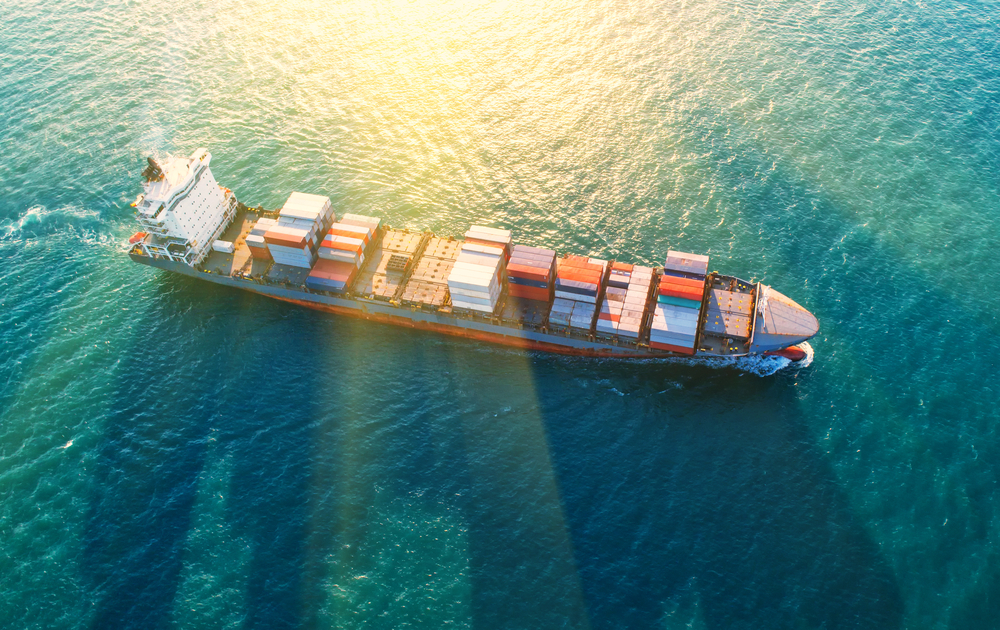Opportunity in a Troubling (and Odd) Indicator
Andy Snyder|February 4, 2021

Want to know the health of our nation’s economy? Look at its ports.
Here is a crazy fact.
In the last few months, 3 out of every 4 shipping containers that left the U.S. were empty.
Because of massive trade imbalances, it now makes more economic sense for a port to ship empty containers back to China than to send tangible and valuable goods to other parts of the world.
It’s scary evidence of a world that’s off its economic axis.
No Place to Go
Farmers, as usual, are the first to get slammed.
The corn and soybeans they load into bags that are put into these containers are being rejected. Hundreds of millions of dollars’ worth of food has been left on the dock. Instead of sending that grain to other parts of the world, ports are shipping the containers it would have gone in back to China… empty.
The problem is being felt around the world.
Vietnam, Thailand and India are all feeling the pressure. Not only is needed food not making it to their ports, but the cost to export their products has doubled – or much more – in just a month.
The worse the trade imbalance… the higher the cost.
In December, it cost $2,850 to send a container from Vietnam to a major port. In January, that figure soared to $7,000.
It can now cost as much as $10,000 to get a standard 40-foot container to a port in the U.K., where many of the empty containers are stacking up. Three months ago, the price was just $1,000.
The rationale for all of this is simple.
There’s a finite number of containers and limited land to store them all. When a country’s imports exceed their exports, the big metal boxes stack up – taking up valuable port space.
The only way to relieve the pressure is to fill ships with empty boxes and send them back to the big export countries… like China.
An Off-Centered Economy
Some of the issue is due to the COVID mess. Shutdowns have rippled across the global economy. And with ships moving slowest, they’re the last to return to normal.
A lot of the issue, though, stems from rapidly changing consumer habits and evolving economies.
We don’t need to remind you that America makes far fewer things today. The bits and bytes of our digital economy keep our GDP expanding… but they don’t need to be put in a box and tossed on a ship.
It’s making our imports that much more expensive.
Take tuna. While you may think that steak on the griddle was caught off America’s shores, you’re likely wrong.
Chances are that it came from Thailand. It exports $2.6 billion worth of tuna each year.
Demand is soaring as Americans eat more at home and as we order more of our food through the mail.
Thailand can get the fish… but it can’t get the containers. More than 1,000 of the boxes it needs right now are stuck in other ports. And when they’re free… China gets them first.
It’s a mess.
Making Cents
For investors, awareness is the top concern.
Costs are already on the rise. But most of the price hikes coming from this troubling situation have yet to show up on shelves.
It’s part of the reason we predict inflation will ultimately be one of the biggest stories of the year.
Pay attention to it!
The other side of the coin, though, is profitable.
The commodities market is filled with fast-moving opportunities. Break-bulk commodities – like white sugar – don’t have to be loaded in containers. They go directly in the hold of cargo ships. Because white sugar isn’t affected by the container shortage like other forms of the sweet stuff, its prices are hitting record highs as a result of surging demand for it as a substitute.
There are similar plays across the commodities market. A typically dull market is coming to life.
Of course, shipping companies – and their shareholders – are enjoying the frenzy.
They don’t mind that they’re shipping empty boxes across the globe. It means less fuel and higher fees. Spot prices nearly doubled late last year.
It explains why so many shipping companies have shown up on my volume-tracking screens in recent weeks.
Danaos (DAC), for example, is a small Greek company that owns and leases container ships to the big lines. Its shares saw a spike in buying demand on November 24. Less than two months later… shares were up by 175%.
Its smaller competition – so small that we’d create a Reddit-like move just by naming it here – is doing even better.
This is a story to take advantage of.
Each of those containers piled up on the coasts represents huge amounts of money moving in and out of the country.
They are symbolic of big, evolving trends.
Pay attention to them, and not only will you be prepared for what’s ahead… but you might just make out quite nicely.
That’s surely our intent.
P.S. Our Manward Letter readers just got a slew of new reports about another hot trend… 6G. Thanks to this technology, we’re convinced the hype over 5G is flat-out wrong. There’s fresh competition, and this pre-IPO opportunity is our favorite way to play it. Click here for all the details.
Like what you’re reading? Tell us at mailbag@manwardpress.com.

Andy Snyder
Andy Snyder is an American author, investor and serial entrepreneur. He cut his teeth at an esteemed financial firm with nearly $100 billion in assets under management. Andy and his ideas have been featured on Fox News, on countless radio stations, and in numerous print and online outlets. He’s been a keynote speaker and panelist at events all over the world, from four-star ballrooms to Capitol hearing rooms.



